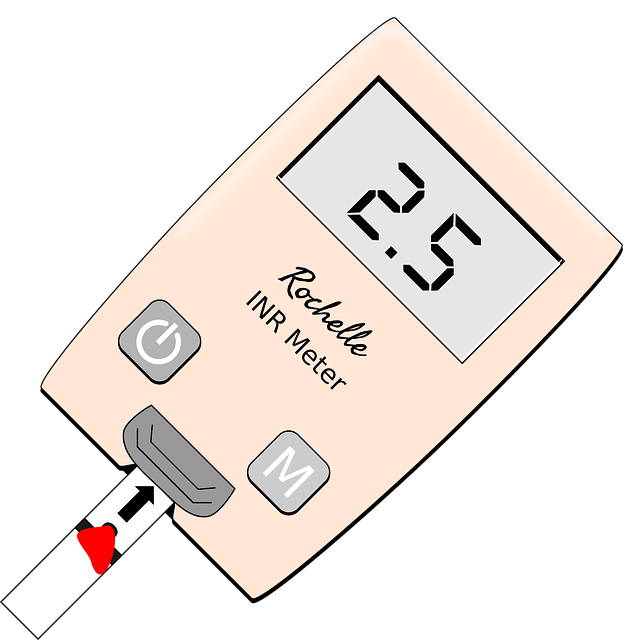The UK Kidney Blood Test is a vital tool for diagnosing iron deficiency anaemia by measuring ferritin levels, indicating iron storage in the body. Low ferritin signals potential issues like blood loss or dietary deficiencies and helps healthcare professionals tailor treatment strategies to address specific causes, especially in patients with kidney conditions or at risk of anemia. Accurate interpretation requires considering age, gender, and health factors to ensure effective management and prevent complications from untreated iron deficiency.
“Unraveling the mysteries of iron deficiency begins with understanding ferritin, a protein vital for storing this essential mineral. This article explores the significance of ferritin level testing in diagnosing iron deficiency, particularly through the lens of the UK Kidney Blood Test—a reliable method for assessing iron status. We delve into the role of ferritin in iron storage and interpret its levels, offering insights that healthcare professionals can use to make accurate diagnoses.”
- Understanding Ferritin and Its Role in Iron Storage
- Why UK Kidney Blood Test for Iron Deficiency?
- Interpreting Ferritin Levels: Diagnostic Criteria and Considerations
Understanding Ferritin and Its Role in Iron Storage
Ferritin is a protein that plays a crucial role in iron storage and regulation within the body. It acts as a natural reservoir, capturing excess iron and releasing it when needed. This process is essential for maintaining optimal iron levels, which are vital for various bodily functions, including energy production, immune system health, and overall well-being. A UK kidney blood test often includes ferritin measurements to assess iron status, especially in cases of suspected iron deficiency anaemia.
In the context of diagnosing iron deficiency, low ferritin levels can indicate insufficient iron storage, suggesting that the body is unable to meet its demands. This could be due to various factors, such as blood loss, inadequate dietary intake, or increased iron excretion. By measuring ferritin, healthcare professionals can gain valuable insights into a patient’s iron status, helping them make informed decisions about treatment and management strategies.
Why UK Kidney Blood Test for Iron Deficiency?
In the diagnosis of iron deficiency, the UK Kidney Blood Test stands out as a crucial tool due to its ability to provide precise and comprehensive insights into an individual’s iron levels. Unlike general blood tests that may not capture the full picture, this specific test delves into the kidney’s function, which is closely tied to iron metabolism. By examining various markers in the blood, including ferritin, transferrin, and iron saturation, healthcare professionals can accurately assess whether iron deficiency is present and its severity.
The UK Kidney Blood Test offers several advantages, particularly for individuals with underlying kidney conditions or those at risk of iron deficiency anemia. It helps differentiate between causes of low iron levels, such as blood loss, inadequate dietary intake, or impaired absorption, ensuring that treatment strategies are tailored to the specific needs of each patient. This personalized approach is vital in managing iron deficiency effectively and preventing potential complications associated with long-term untreated iron deficiency.
Interpreting Ferritin Levels: Diagnostic Criteria and Considerations
Ferritin levels play a crucial role in diagnosing iron deficiency anaemia. Interpreting these results requires understanding specific diagnostic criteria. In the UK, healthcare professionals often rely on kidney blood tests to assess ferritin levels as an indicator of overall iron storage in the body. Normal ferritin ranges typically vary by age and gender, with adult males generally having higher levels than females.
When interpreting these tests, it’s important to consider factors like inflammation and liver disease, which can affect ferritin levels. In some cases, a low ferritin result might not always indicate iron deficiency, especially if there are alternative causes. Consequently, healthcare providers may use additional tests or assessments to confirm an iron deficiency diagnosis, ensuring accurate treatment plans for patients.
Ferritin level testing, coupled with a UK Kidney Blood Test, serves as a robust diagnostic tool for Iron Deficiency. By understanding ferritin’s role in iron storage and interpreting levels accurately, healthcare professionals can efficiently identify and manage this common nutritional deficiency. This approach ensures that individuals receive appropriate treatment, promoting overall health and well-being.
